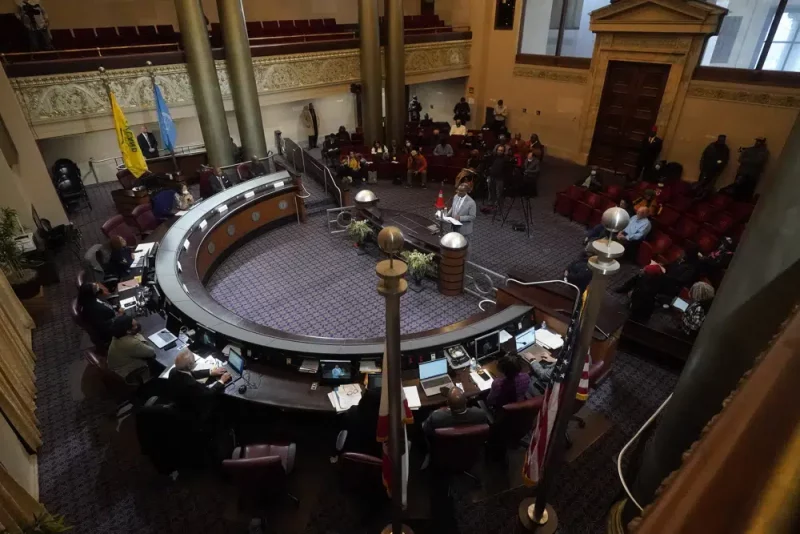California reparations task force to talk eligibility
Share
Explore Our Galleries
Breaking News!
Today's news and culture by Black and other reporters in the Black and mainstream media.
Ways to Support ABHM?
By Sophie Austin and Janie Har, Associated Press
The first-in-the-nation task force previously voted to limit reparations to Black California residents whose ancestors were living in the U.S. in the 19th century.

OAKLAND, Calif. (AP) — After more than a year delving into history and studies to make its case for reparations to California descendants of enslaved Black people, a first-in-the-nation task force began deliberations Wednesday to quantify how financial compensation might be calculated and what might be required to prove eligibility.
Conversations for how to determine payments are in the early stages, with task force members acknowledging they have more questions than answers. Economists hired by the task force are seeking guidance in five harms experienced by Black people: government taking of property, devaluation of Black-owned businesses, housing discrimination and homelessness, mass incarceration and over-policing, and health.
California’s task force met Wednesday at City Hall in Oakland, a city that was the birthplace of the Black Panthers but has lost some of its African American population as rising home prices forced people out.
The task force must determine when each harm began and ended and who should be eligible for monetary compensation in those areas. For example, the group could choose to limit cash compensation to people incarcerated between 1970 — when more people started being imprisoned for drug-related crimes — to the present. Or they could choose to compensate everyone who lived in over-policed Black neighborhoods, even if they were not themselves arrested.
The task force has a July 1 deadline to complete its final report for the Legislature listing recommendations for how the state can atone for and address its legacy of discriminatory policies against Black Californians. Lawmakers will need to pass legislation for payments and other policy changes to take place.
Reparations have been debated in Providence, for HBCUs, and to combat climate change,
ABHM’s breaking news section covers other relevant topics.









Comments Are Welcome
Note: We moderate submissions in order to create a space for meaningful dialogue, a space where museum visitors – adults and youth –– can exchange informed, thoughtful, and relevant comments that add value to our exhibits.
Racial slurs, personal attacks, obscenity, profanity, and SHOUTING do not meet the above standard. Such comments are posted in the exhibit Hateful Speech. Commercial promotions, impersonations, and incoherent comments likewise fail to meet our goals, so will not be posted. Submissions longer than 120 words will be shortened.
See our full Comments Policy here.